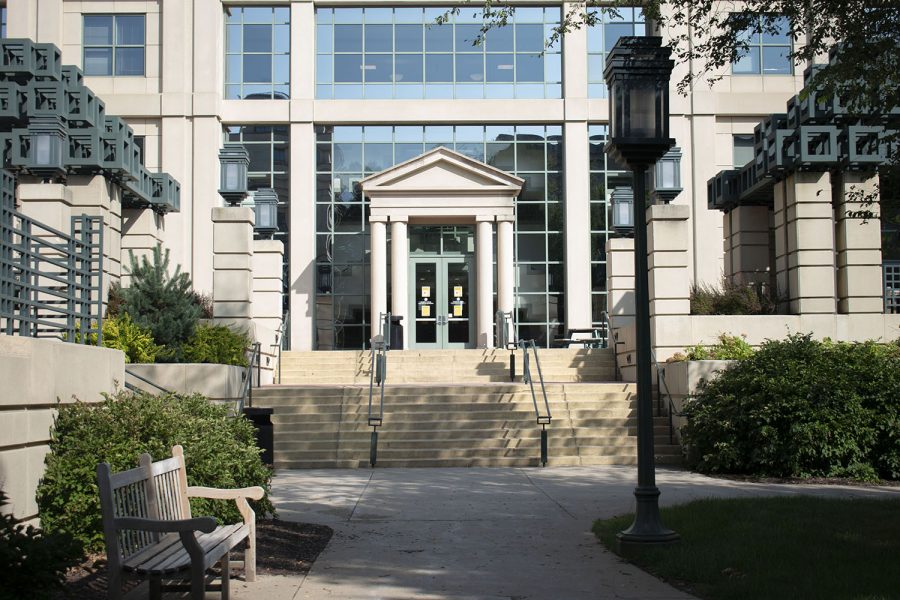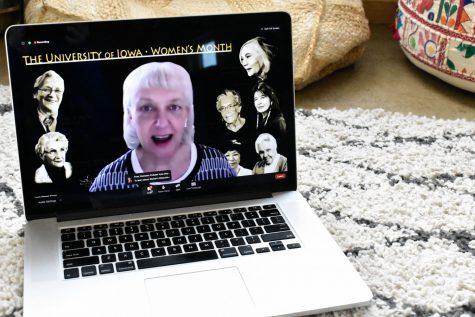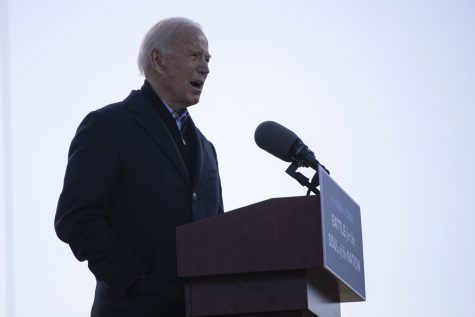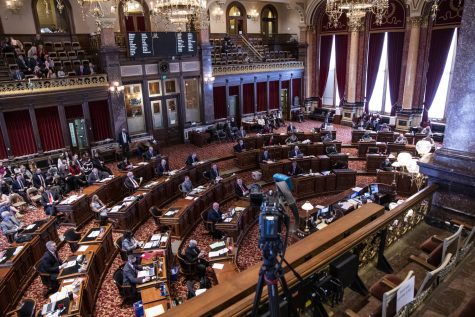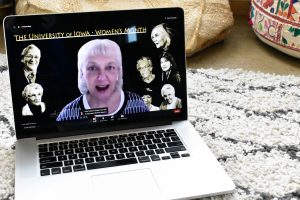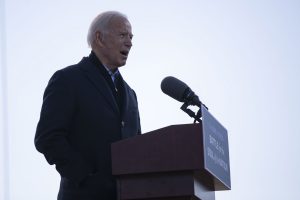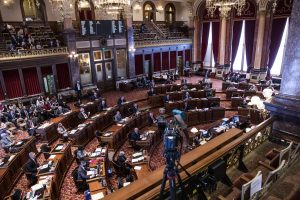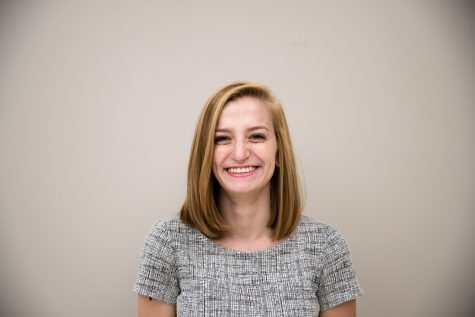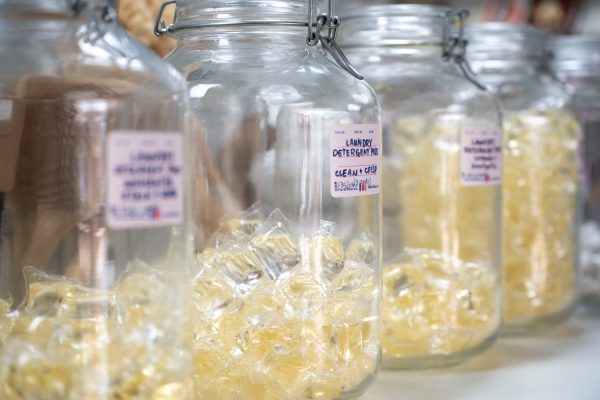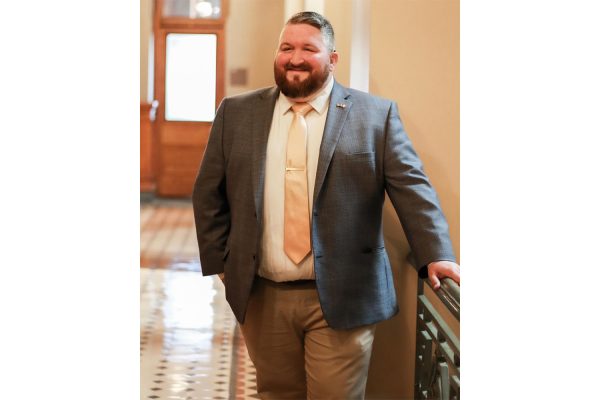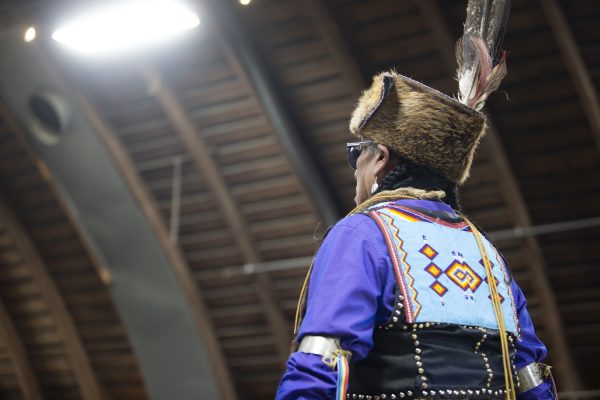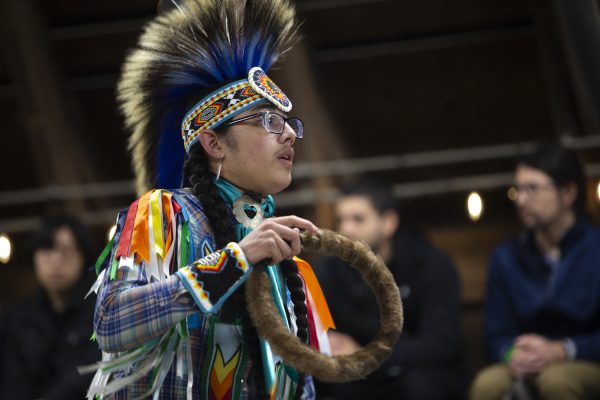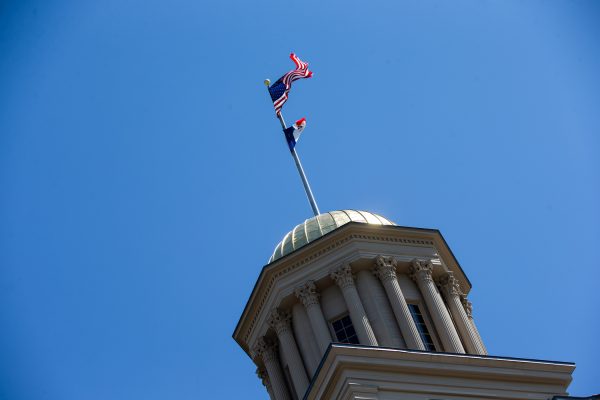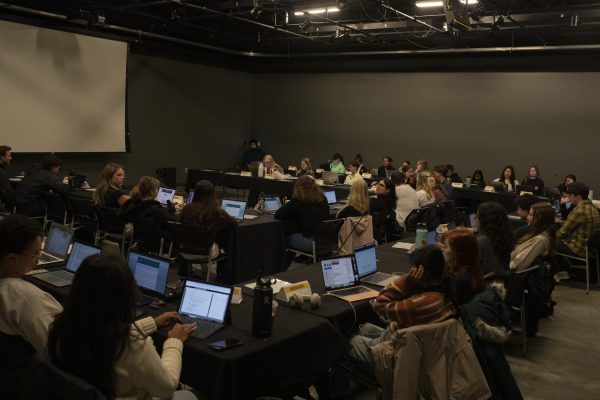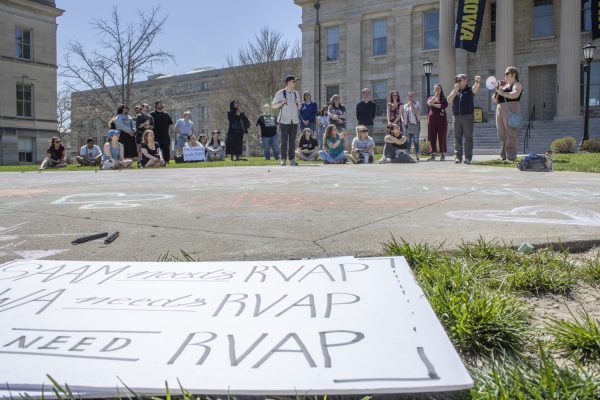University of Iowa Native American Leadership Academy deals with technology difficulties, adds support
Because of the COVID-19 pandemic, the university’s Native American Leadership Academy has adapted to Zoom to ensure their participants feel comfortable and develop trusting relationships.
Tippie College of Business Building is seen on Tuesday, Sept. 15, 2020.
March 8, 2021
Since the pandemic began, the University of Iowa College of Public Health’s Native American Leadership Academy has continued to offer support to Native American behavioral health specialists through safe, virtual spaces.
The UI’s program helps tribal leaders across the U.S. develop programs to address addiction and mental health within their communities. The program brings mentees and mentors from similar communities together to learn from one another to promote conversations about difficult topics.
Program Co-Director Sean Bear said the program has adapted to an online format swiftly to assist the most people possible, but it hasn’t been easy. He said there have been some technology issues, but the real difficulty is ensuring there is assurance among participants.
“A lot of the Native tribes seem to prefer face-to-face options because they are able to see body movement and understand tone,” he said. “That’s a big part of being able to tell if someone is truthful and trust needs to be built in this program.”
To accomplish this trust, Program Manager Monica Dreyer Rossi said the program added more meetings to help participants feel more comfortable and have a safe space to discuss the pandemic with like-minded individuals.
“When the pandemic started, we decided to start an additional weekly meeting for everyone,” she said. “It’s an informal coffee circle for mentors and mentees in the leadership academy to meet and share information about new developments and challenges. We share resources and help support one another.”
She said the participants felt secure at the meetings and were glad they had an outlet to discuss what was going on in their communities. The weekly meetings have since slowed down to be monthly for individuals who still want to have conversations strictly about COVID-19, she said.
Normally, the program has three in-person events, Dreyer Rossi said. Because participants can no longer meet face-to-face, she said the program is allowing its mentors and mentees to meet in any way and at any frequency that works for them.
She said the work the program is doing has never been more important.
“The focus of our work is to support and provide training to people working in mental health and addiction fields,” Dreyer Rossi said. “And many people are experiencing harder times with mental health and addiction due to the pandemic. It’s even more important now to be providing these services and general support to our participants.”
Tippie College of Business Professor Amy Colbert assists the public-health college with the leadership program. She joined the program in 2019 and helps program participants with leadership, personal development, and understanding feedback they receive in terms of leadership.
Colbert said the academy is based on discussions and conversations so mentors and mentees can learn from one another, something that has been difficult to adapt to an online format.
“The group of mentors and the participants are a nice size for Zoom discussions, but some participants had trouble with their video,” she said. “We used small groups and chat to encourage discussion among the participants.”
Colbert said a main concern of hers with moving the program online was ensuring participants and mentors could build trust with one another so they could grow as leaders.
She said it’s more difficult to build trust during Zoom, but the program has allowed her to build in more time for participants to get to know her and the other participants.
While the program focuses on new ways to build and maintain relationships between its participants, Bear said his work has multiplied as he focuses on communicating with participants and addressing individuals’ concerns.
He said the program is also looking toward the future and ensuring the program can continue online and in person when necessary.
While the program is doing the best that it can during the pandemic, Dreyer Rossi said she hopes the participants can meet in-person soon, once it’s safe.
“We have participants from all over the country,” she said. “So, we have to continue to monitor the situation all over the country to determine when it’s possible for people to travel safely again … I’m hopeful we can meet this year and we have started planning schedules for potentially in-person meetings, but we can’t set firm dates at this point.”
Colbert said she is thankful the program is persisting because it showcases what the UI can do to help individuals across the country.
“I love this program because it allows the expertise of the University of Iowa to get out into the world,” Colbert said. “The expertise from Public Health and Business is relevant to [the Native American] community, and this program allows us to share that expertise in a new way. The program is a great example of how the knowledge created at the University of Iowa can be used to help specific communities with specific problems they’re facing.”



